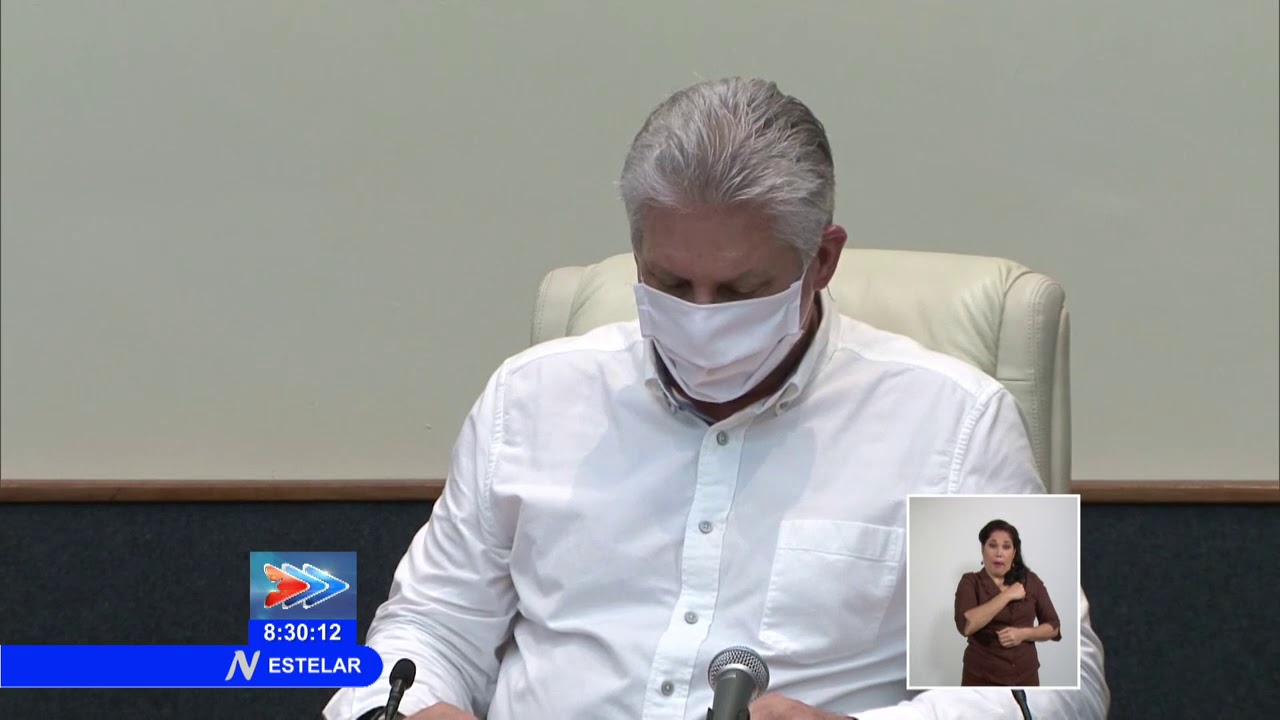A woman stopped by the police while running alongside her son in a Havana suburb, a man reprimanded by an agent by the capital city’s Malecon (seawall), which he was driven away from...
Cubans agree that streets on the island are emptier than usual, but many are unclear on what they can and cannot do, what the limits are, as they do not know how far the government's recommendations go, and just exactly what is mandatory.
The police are no better informed, according to accounts appearing on social media: diffident and unconvincing, they are unable to give citizens precise explanations and indications.
The responsibility for this situation lies with the government, not only due to its lack of effective communication, which has generated confusion, but also because many of the measures taken in Cuba so far are unconstitutional and, as such, illegal.
Restrictions such as those on travel, for both Cubans and foreigners on the island, the school closures, the prohibition on picking up family members arriving from abroad at airports, the compulsory confinement of family members, etc., had no legal footing. The only thing supporting their imposition is having been declared by the government through official media, but this does not make them legal.
Such measures would only be lawful after the declaration of a "state of emergency" which, however, has yet to be announced. And this is where the confusion begins.
According to Article 67 of the Constitution, paragraph two, referring to the different working hours and the systems governing them, these may be, exceptionally, altered by the National Defense Law, whose Articles 20 and 21 stipulate that "in cases of natural disasters or catastrophes, or their imminence; or other circumstances whose nature, magnitude or proportion affect internal order, the security of the country, or the stability of the state, the president of the Council of State may declare a state of emergency throughout the nation, or part of it, and, for the duration of its validity, implement the population's mobilization."
The law stipulates the way in which the state of emergency is declared, its effects, and its cancellation. It also determines the fundamental rights and duties recognized by the Constitution, the exercise of which must be regulated differently during the state of emergency."
In other words, Esteban Lazo, in his capacity as President of the Council of State, should be the one to declare a state of emergency, thereby legalizing the restriction of freedoms, currently imposed in Cuba in an arbitrary manner.
In addition, Law 75 on National Defense must be invoked to implement the state of emergency.
This laws states that "National Defense is prepared and executed under the leadership of the Communist Party. The State, for its part, must ensure the necessary resources."
The use of the National Defense Act "is provided for in three cases: war, general mobilization, or a state of emergency."
With regards to the latter, it states that, once declared, "as soon as circumstances permit, the President of the Council of State reports his decision to the National Assembly of Popular Power, or the Council of State, if the former cannot meet."
In addition, "the President of the Council of State may prolong the state of emergency, or declare it over, depending on the presence or disappearance of the causes that gave rise to it, and shall report his decision to the National Assembly or the Council of State, as provided for."
In other words, only a duly declared state of emergency can temporarily restrict the rights of citizens in peacetime, but this is currently being done in Cuba anyway.
The government has also activated the Defense Councils, ignoring the fact that, according to Law No. 75, they "they are constituted and prepared during peacetime to govern the country under conditions corresponding to a state of war, war, general mobilization, or a state of emergency, the least stringent exceptional measure."
Unlike Cuba, other countries affected by Covid-19 have declared states of emergency, alarm, or activated other mechanisms existing in their legal systems for emergency situations in which citizens' freedoms need to be restricted.
Why has the Cuban Government not done this, despite being in the midst of a global pandemic?
It is difficult to verify the truth from among the possible explanations: not to further alarm the population, the tendency to govern in an autocratic manner, deeply rooted in Castroism...
In any event, the government has once again taken advantage of the lack of a democratic culture in the country, a deficiency that it has nurtured among Cubans, and ignorance of the constitutional mechanisms that limit restrictions on fundamental rights theoretically protected by the Constitution.
No one, not even the State, can violate fundamental rights without a legal basis to do so. The fact that the government has invoked protecting the public from a health crisis does not make its actions valid, nor is the repeated proclamation of the existence of the rule of law in Cuba credible when there is no adherence to the rules established by the State itself.
The call to "strengthen the rule of law" made by Miguel Díaz-Canel at the close of the Fourth Regular Session of the National Assembly of Popular Power, on December 21, the focus of the intense legislative agenda that had been planned for the coming months, is an early casualty of Covid-19 in Cuba.
